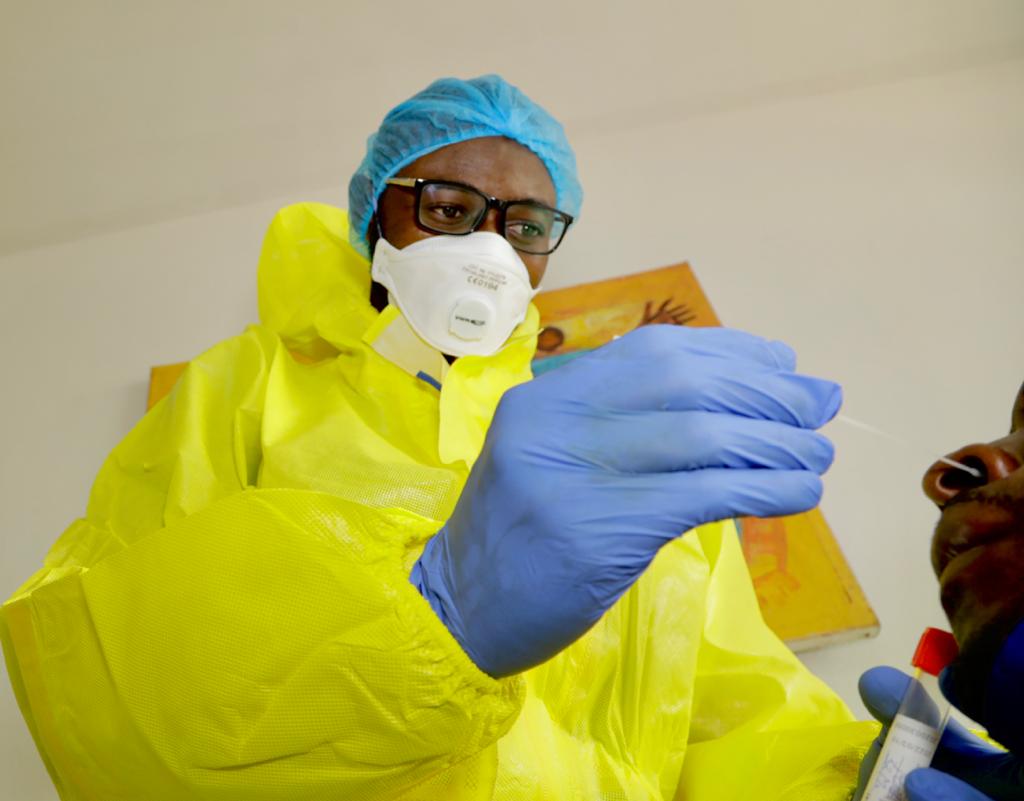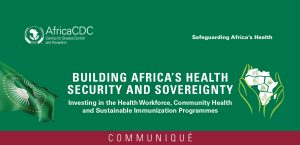| Date/Time | 01 September 2023 |
| Event | SARS-CoV-2: Highly mutated BA.2.86 sub-variant |
| Notification | Communique |
| From | Africa Centres for Disease Control and Prevention (Africa CDC) |
| To | AU Member States |
What We Know
● BA.2.86 is a variant of SARS-CoV-2 that has undergone multiple genetic changes compared to other variants.
● SARS-CoV-2 subvariant BA.2.86 is a variant under monitoring (VUM) by the World Health Organization.
● BA.2.86 has more than 30 additional mutations compared to the original BA.2 lineages.
● As of 28 August, 2023, cases of BA.2.86 have been reported across Africa, America, Europe, and the Middle East.
● BA.2.86 has also been detected in wastewater samples from Switzerland, Thailand, and the USA.
● Based on available information, there is no evidence that BA.2.86 is associated with increased transmission, disease severity, hospitalisation, reduced vaccine, diagnostic, or therapeutic efficacy.
● There have been no reports of changes in the presentations or symptoms of BA.2.86 when compared to previously reported variants.
● Africa CDC will continue to update this communique as more information becomes available.
Situation Summary
On 18 August 2023, the World Health Organisation (WHO) classified BA.2.86 as a ‘variant under monitoring (VUM)’ after the report of hyper-mutated BA.2.86 subvariant from multiple countries. The first case was detected in Denmark in a specimen collected on 24 July 2023. As of 01 September 2023, the BA.2.86 sub-variant was reported from five countries: Denmark (4 cases), United States (3), South Africa (3), Israel (1), and the United Kingdom (1).
BA.2.86 has more than 30 mutations on the spike protein as compared to its ancestral BA.2 lineage and more than 58 mutations compared to the early Wuhan-Hu-1 wild type strain. Even though there are a large number of mutations and the report of this variant from Africa, America, Asia and Europe, at this point in time, there is no evidence of increased transmission, or association with increased severe illness, or impact on vaccines, diagnostics and therapeutics.
Recommendations for Africa Union Member States
While it is too soon to determine the possible impact of BA.2.86 on transmission, disease severity, efficacy of vaccines, diagnostics and therapeutics, this communique is published to provide timely information for African Union (AU) Member States (MS). In line with this, Africa CDC advises Member States and Health Authorities as follows:
1. COVID-19 vaccines remain a key tool to prevent severe cases and deaths from COVID-19 infection. AU Member States should accelerate the immunization of high-risk populations.
2. Strengthen sentinel surveillance system for SARS-CoV-2 and incorporate it into the Influenza-like illness/Severe Acute Respiratory syndrome (ILI/SARI). Continue monitoring the trends and key indicators like hospitalization, severity, bed occupancy and test positivity.
3. Reinforce timely genomic surveillance through coordination with national and regional pathogen genomics laboratories. The Africa CDC, through the Africa Pathogen Genomics Initiative (Africa PGI), continues to support this coordination at the continental level. Requests for assistance on genomic sequencing can be directed to Africapgi@africa-union.org
4. Conduct epidemiological investigations to assess the severity of the BA.2.86, the impact on the healthcare system, and the effectiveness of public health interventions.
5. Urge all AU Member States to continue timely sharing of data on emerging SARS-CoV-2 variants or subvariant with Africa CDC. Notify Africa CDC by emailing: AfricaCDCEBS@africa-union.org
Additional resources
1. CDC – Risk Assessment Summary for SARS CoV-2 Sublineage BA.2.86 (https://www.cdc.gov/respiratory-viruses/whats-new/covid-19-variant.html)
Callaway, Ewen. 2023. “Why a Highly Mutated Coronavirus Variant Has Scientists on Alert.” Nature, August. https://doi.org/10.1038/d41586-023-02656-9.
Dr. Sofonias Kifle Tessema







